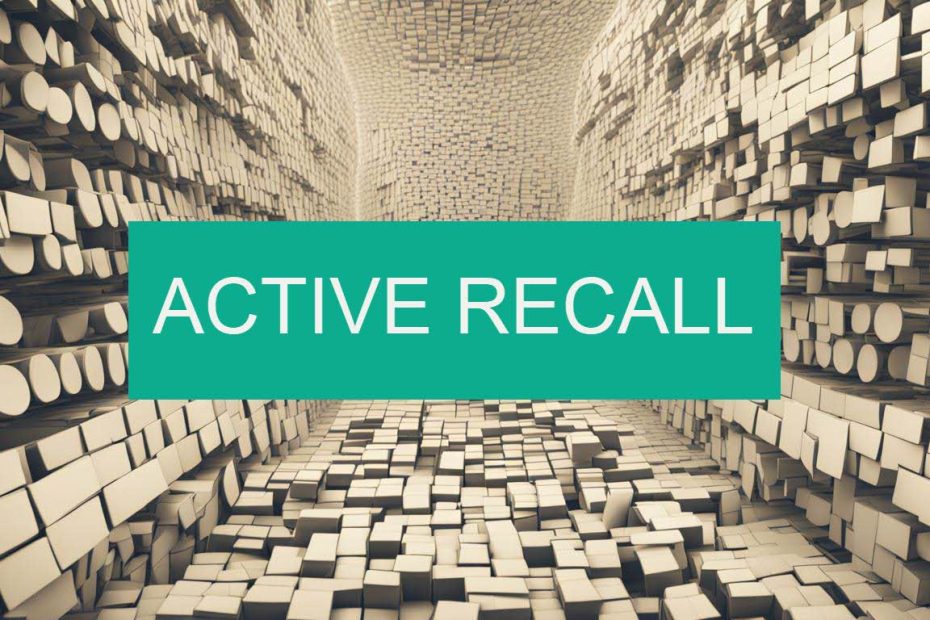Active recall can help you learn faster, easier, and better.
Active recall is a study technique that involves actively trying to remember information from memory without looking at your notes or other sources. It differs from recognition, which is when you can identify the correct answer from a list of options, or passive review when you read or re-read your notes or textbook.
Active recall is more effective than recognition or passive review because it strengthens the neural connections in your brain and helps you consolidate the information in your long-term memory. Active recall can be done in various ways, such as using flashcards, self-made questions, quizzes, or summaries.
Benefits of using active recall for learning
Active recall is a study technique that is based on the principle that the more you retrieve something from your memory, the more likely you are to remember it in the future. Active recall is more effective than other study techniques, such as recognition or passive review, because it strengthens the neural connections in your brain and helps you consolidate the information in your long-term memory. Some of the advantages of using active recall as a learning technique are:
Active recall is a powerful and effective tool for learning faster, easier, and better. You can use different methods of active recall, such as flashcards, self-made questions, quizzes, or summaries, to study any subject or topic. You can also combine active recall with other study techniques, such as spaced repetition or interleaving, to optimize your learning outcomes. Active recall is a technique that can help you achieve your learning goals and succeed in your academic or professional endeavours.
Examples of studying using the active recall learning technique:
Active recall is a technique that can help you learn better by actively trying to remember information from memory without looking at your notes or other sources. By using active recall, you can strengthen the neural connections in your brain and consolidate the information in your long-term memory. Active recall can be applied to any subject or topic, and you can use different methods to practice it, such as flashcards, self-made questions, quizzes, or summaries. You can also enhance your learning outcomes by combining active recall with other study techniques, such as spaced repetition or interleaving, which can help you review the information at optimal intervals and in varied contexts. We encourage you to try active recall yourself and see the difference.
Sources
(1) What is Active Recall? How to use it to ace your exams.
(2) 7 Practical Ways to Apply Active Recall When Studying.
(3) What is active recall and how effective is it? | Atomi.
(4) What is Active Recall? Study Tips to Revise More Effectively – Jamworks.
(5) What Is Active Recall and Passive Recall? | Iris Reading.
